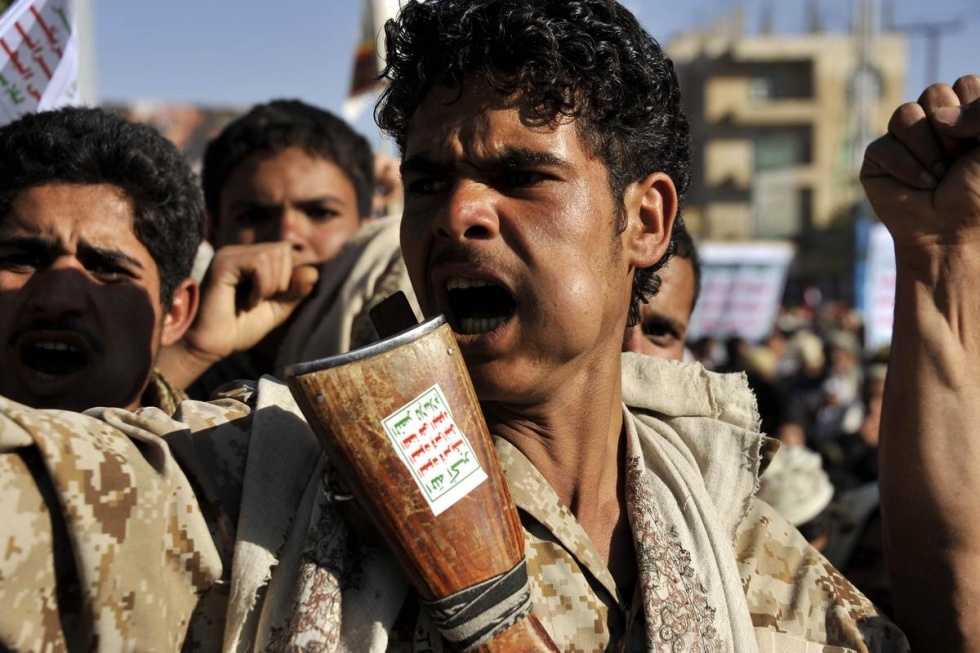Houthi militia disperse Sanaa protest with 'gunfire'

Shiite Houthi militants on Wednesday dispersed a protest in Yemeni capital Sanaa.
"Houthis used gunfire to disperse an anti-Houthi rally in Sanaa," an eyewitness told the Anadolu Agency.
Protesters had gathered in Sanaa to call for the expulsion of armed militias from the capital and the release of detainees.
Protesters also waved photos of leaders of the Muslim Brotherhood-affiliated Islah party, who were allegedly abducted by Houthi militants.
Yemen has remained in a state of chaos since last September, when the Houthis took over capital Sanaa, from which they have sought to extend their control to other parts of the country.
In February, the Houthis issued "a constitutional declaration" dissolving parliament and establishing a 551-member transitional council.
The declaration, however, was rejected by most of Yemen's political forces – along with some neighbouring Gulf countries – which described it as a "coup against constitutional legitimacy."
Hadi: five provinces reject Houthi coup
Meanwhile, Yemeni President Abd Rabbuh Mansour Hadi said Wednesday that five of Yemen's six regions had rejected the Houthi coup.
At a meeting with chieftains from the southern Ad Dali province, Hadi added that the five regions had also approved the results of Yemen's national dialogue, along with an initiative proposed in 2011 by the Gulf Cooperation Council for resolving the country's political crisis.
The Yemeni president did not, however, name the five provinces in question, according to sources who attended the meeting in Ad Dali.
At the meeting, they said, Hadi had asserted that the recommendations of the national dialogue – which wrapped up in 2014 – had paved the way for the creation of a federal state in Yemen based on justice and equality.
Hadi said he had decided to stay in the southern city of Aden to protect Yemen's security, stability and unity.
In February, Hadi fled Aden from Sanaa, where he had been placed under house arrest by the Houthis.
Stay informed with MEE's newsletters
Sign up to get the latest alerts, insights and analysis, starting with Turkey Unpacked
Middle East Eye delivers independent and unrivalled coverage and analysis of the Middle East, North Africa and beyond. To learn more about republishing this content and the associated fees, please fill out this form. More about MEE can be found here.




